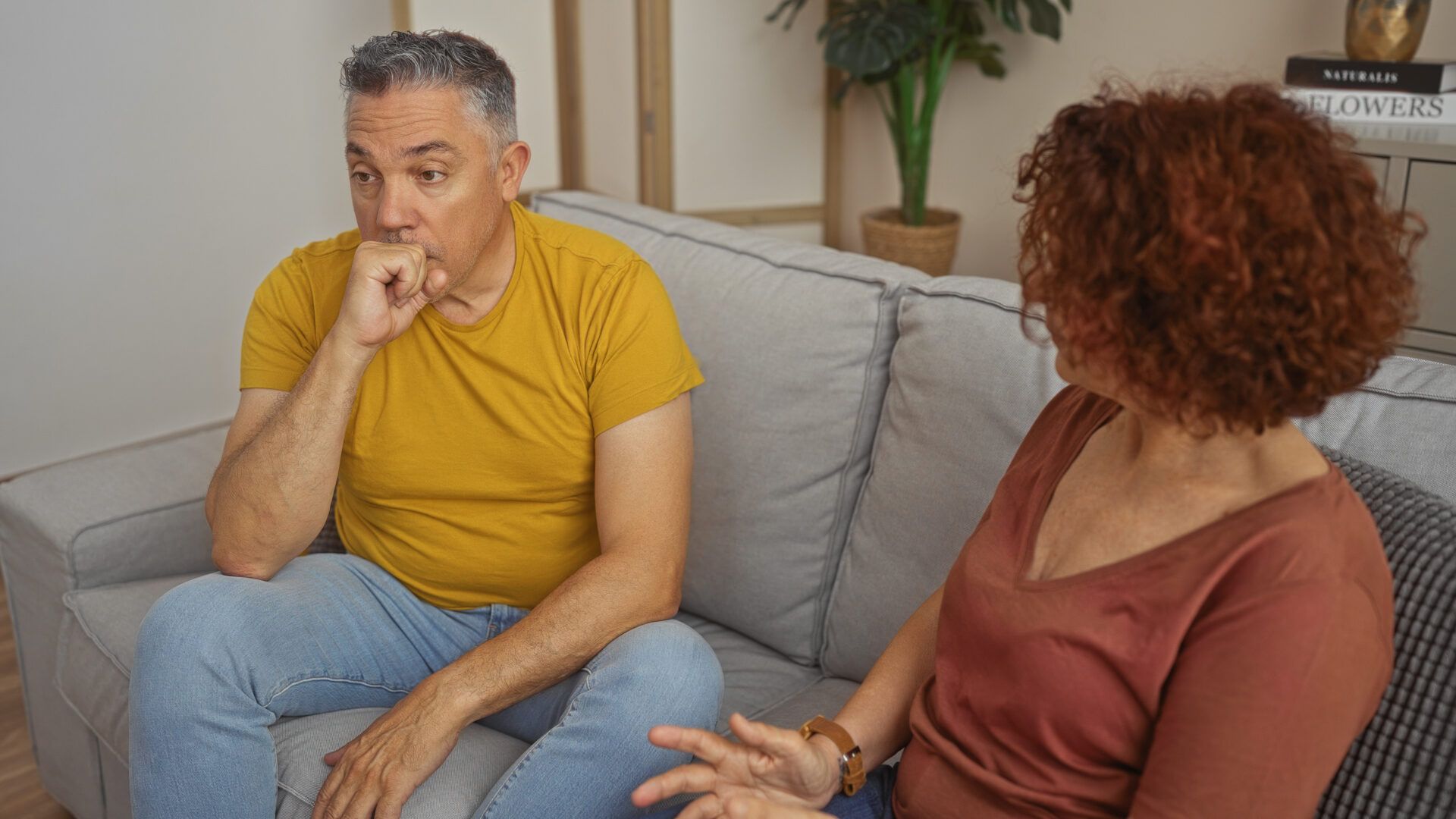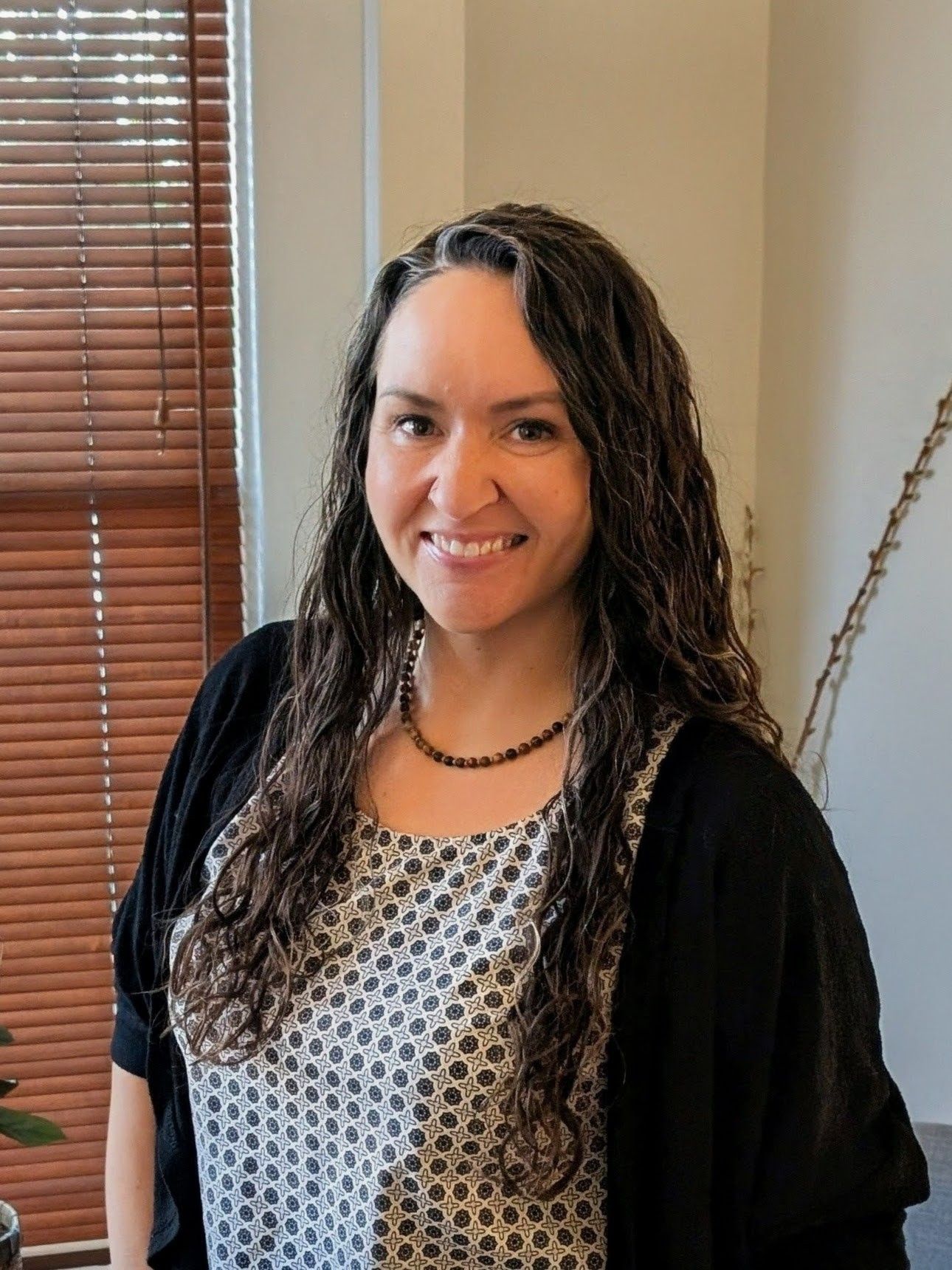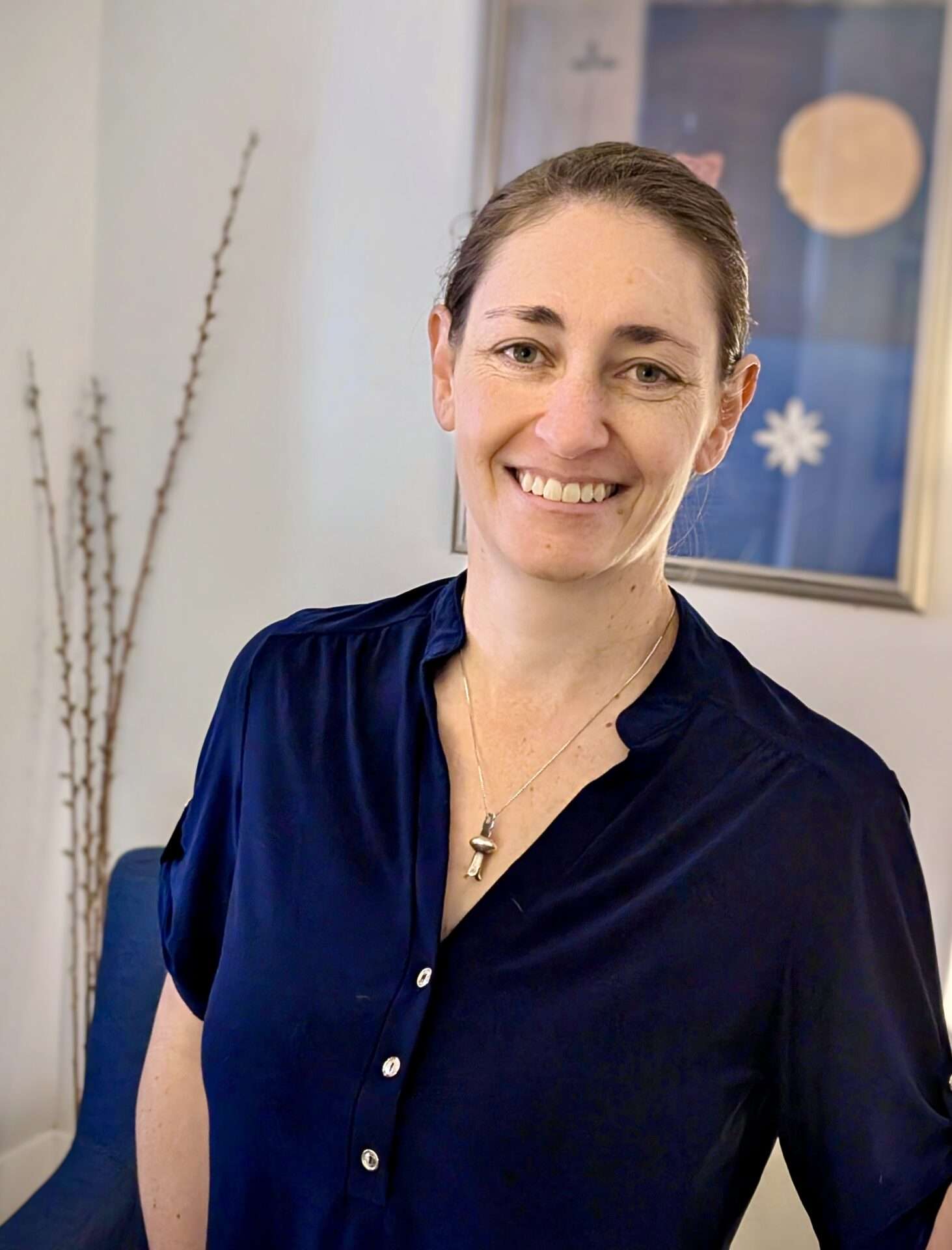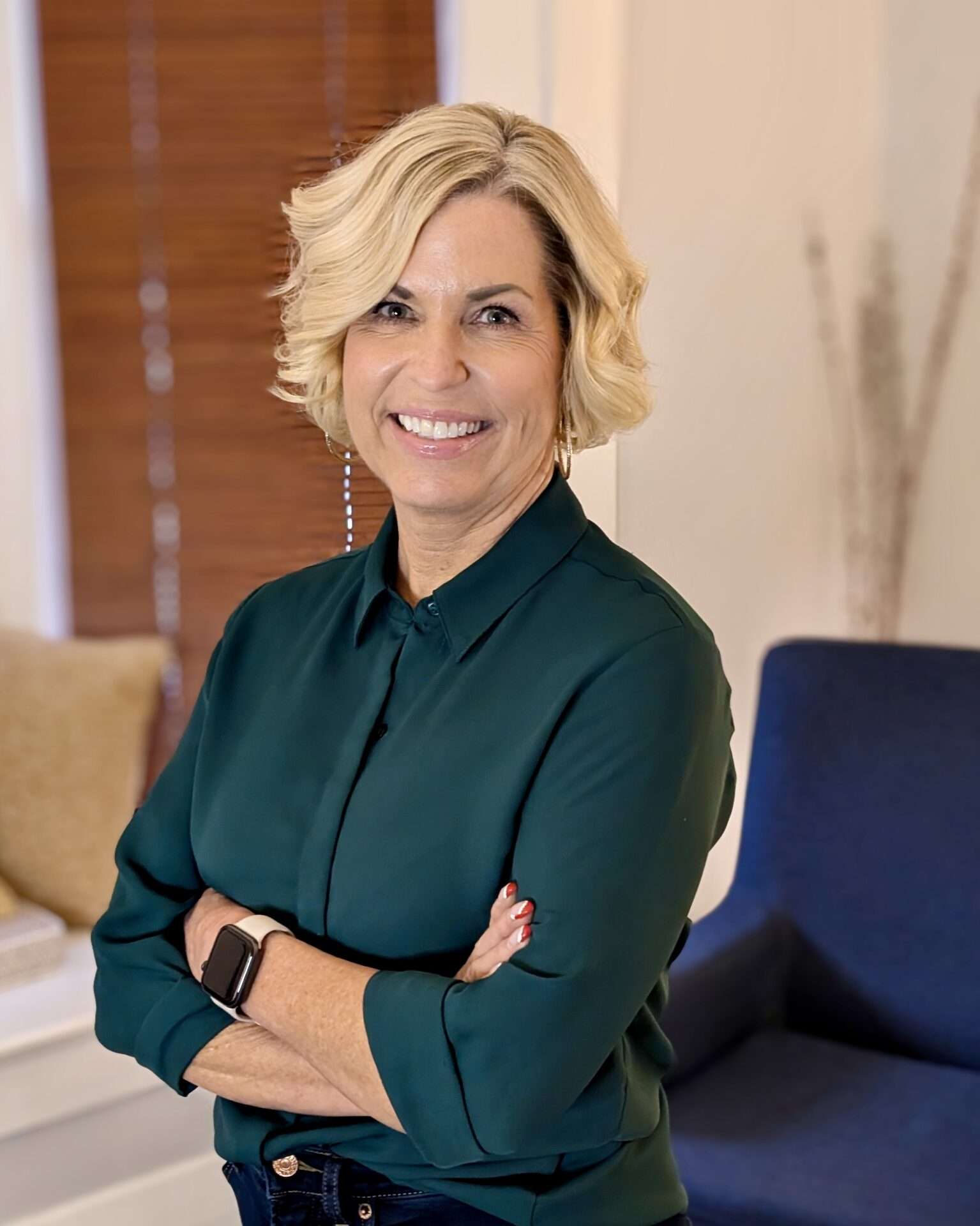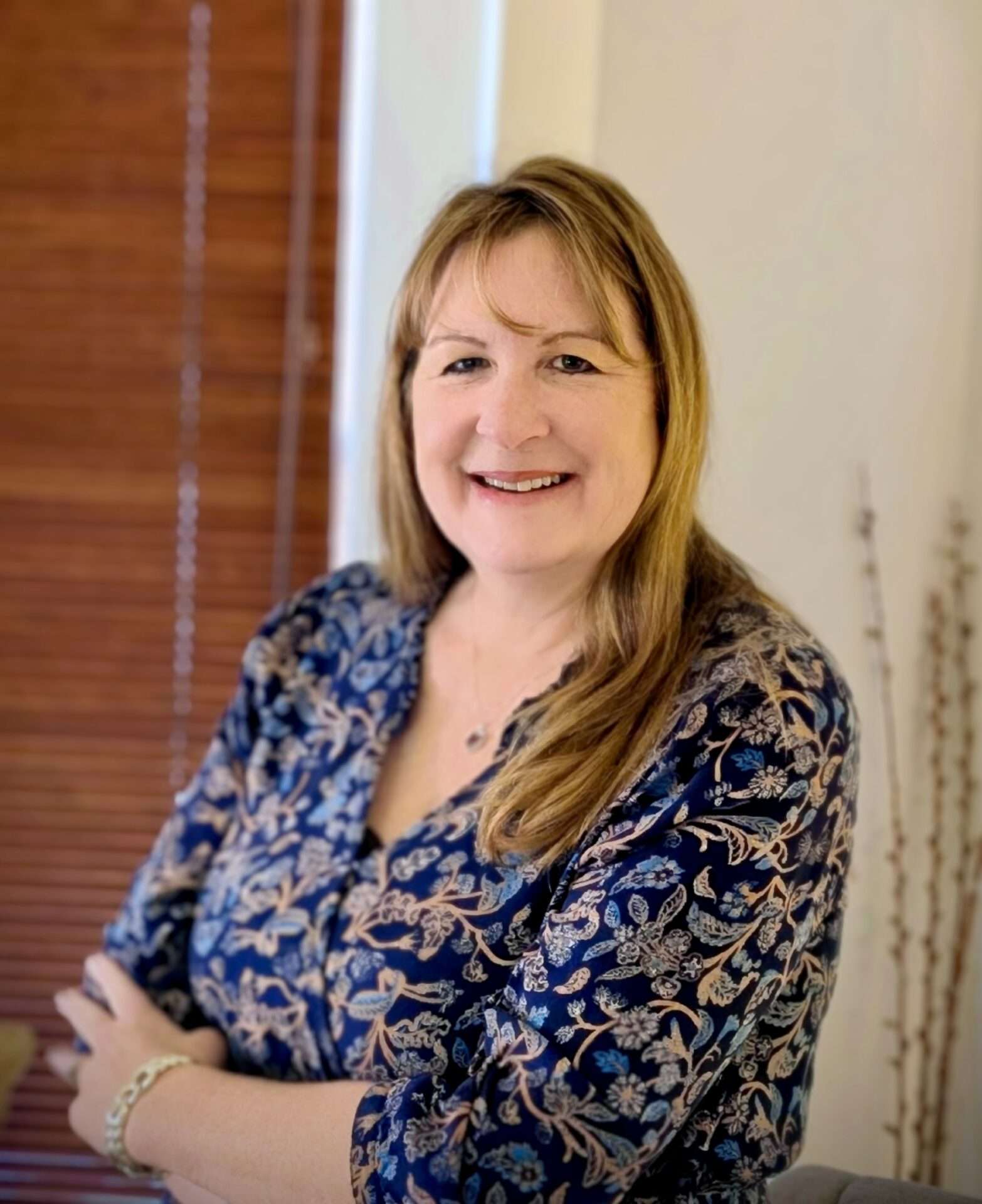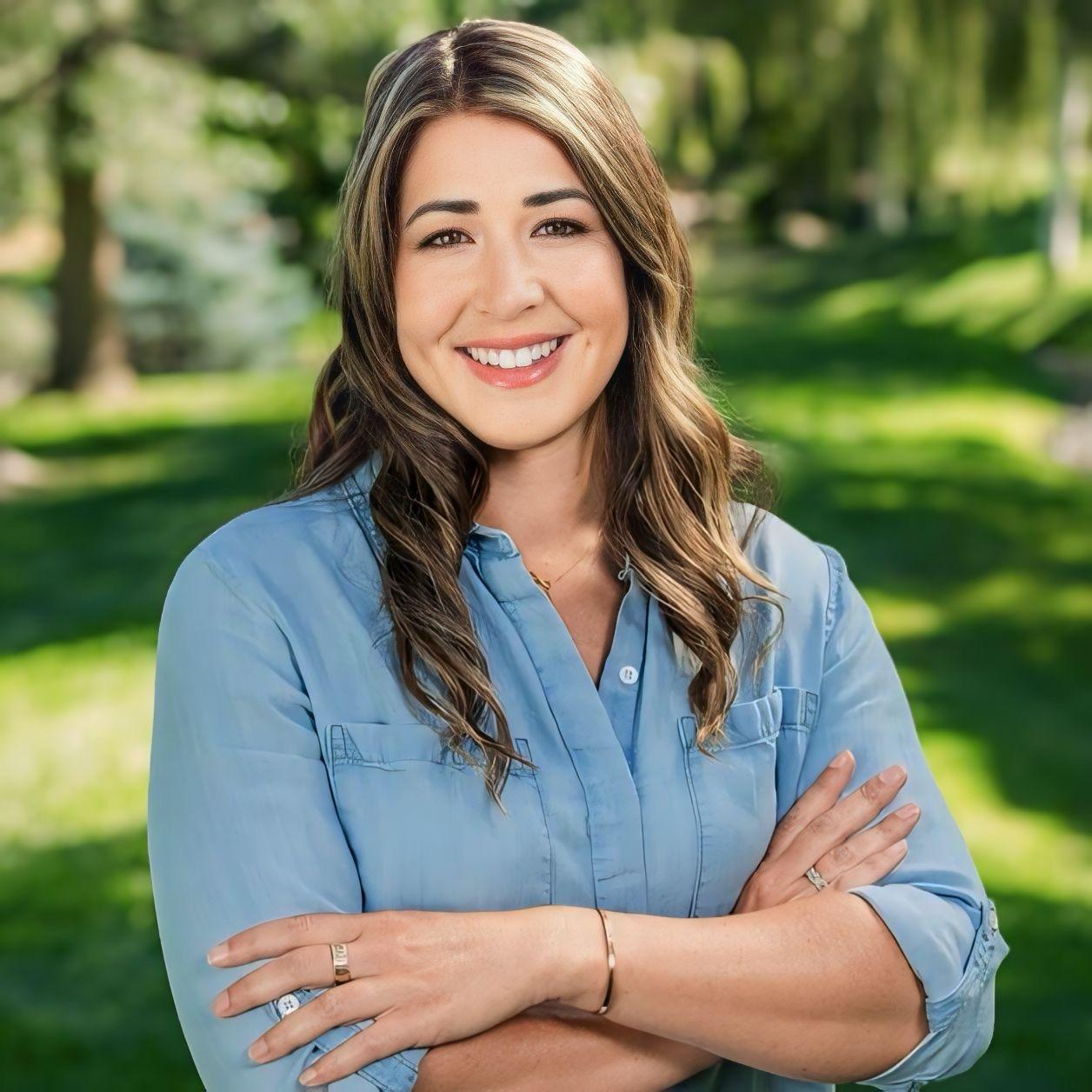Blog Articles
Family Estrangement: Why “Toxic” Isn’t Usually the Whole Story
Family estrangement used to be a private shame. Today, it’s a public conversation. For many, walking away from a family of origin is an act of survival—a necessary step to protect their dignity and safety.
But there is another side to the story. Many parents and grandparents find themselves cut off, feeling confused and heartbroken. They aren’t always villains; often, they simply don’t understand what went wrong.
In our current culture, the pendulum has swung from “stay at all costs” to “cut them off if it hurts.” While this shift has helped many escape abuse, it has also oversimplified complex human relationships.
The Problem with the “Toxic” Label
The word toxic is everywhere. Sometimes it’s accurate—describing relationships defined by abuse or coercion. In those cases, distance is life-saving. However, the label is increasingly used to describe:
- Emotional immaturity or poor communication.
- Generational trauma playing out in reactive ways.
- Attachment injuries where both sides feel like the victim.
When we label every painful interaction as “toxic,” we lose the ability to distinguish between danger and dysregulation. One requires an exit; the other might require a different kind of boundary or repair.
It’s Usually About Fear, Not Malice
Attachment research shows that most family conflict is driven by two deep fears: the fear of being abandoned and the fear of being inadequate. When these fears are triggered, we move into survival mode:
- The Pursuer: Attempts to secure connection through control, criticism, or emotional intensity (which can feel like an attack).
- The Withdrawer: Attempts to protect themselves through silence, denial, or distance (which can feel like coldness).
Over time, these “protection strategies” become a cycle. Parents may defend against the shame of failing, while adult children protect themselves from repeated hurt. Neither side intended to destroy the bond, but neither knows how to stop the bleeding.
How I Work With Families: An Attachment Lens
As an EFFT (Emotionally Focused Family Therapy) therapist, I view estrangement not as a simple moral judgment, but as a painful attachment rupture. In my practice, the central question isn’t “Who is right?” but rather: “What happened to the safety and accessibility in this relationship?”
Estrangement often begins as a protest—a desperate demand to be seen or heard. When those protests fail, they harden into a decision that needing the relationship is simply too risky. My work involves slowing down these reactive cycles so family members can finally name the fears underneath the conflict.
Whether we are working toward reconciliation or processing the grief of a permanent cutoff, the goal is clarity. We focus on moving past the “villain/victim” narrative to understand the underlying injuries. This allows for a path forward that is based on grounded reality rather than reactive pain or unresolved shame.
Finding the Middle Ground
Choosing distance isn’t a “failure,” but it doesn’t have to be the only option for growth. A more nuanced approach allows us to:
- Protect safety and name harm clearly.
- Acknowledge the nuance of generational trauma.
- Distinguish between “bad people” and “bad tools.”
Where This Leaves Us
A trauma-informed approach to estrangement is not “stay no matter what,” nor is it “leave at the first sign of pain.” It is about protecting safety while respecting the messy reality of human connection.
Most people do not wake up intending to damage their family; they are reacting to old wounds using strategies formed long before they had better options. This doesn’t make the behavior harmless, but it changes what healing requires.
Our task is to resist simple narratives. Whether the path forward leads to reconciliation, firm boundaries, or a final goodbye, we owe it to ourselves to move toward a conclusion that is honest, patient, and grounded in reality.
Family-Focused Therapy for Individuals
While estrangement is a family dynamic, the weight of it is carried by the individual. Navigating a “cutoff” often triggers deep-seated anxiety, grief, or a questioning of one’s own identity. This is where individual therapy in Reno can be a transformative resource. Rather than focusing on “fixing” the other person, individual sessions provide a dedicated space to process your own attachment wounds, establish healthy boundaries, and reclaim your sense of peace. Whether you are seeking a therapist in Reno to help navigate the fallout of a family rift or to work through the trauma that led to it, focusing on your own internal healing is often the most vital step toward a resolution.
Moving Toward Clarity
If you are navigating the pain of family estrangement—whether you are the one who initiated the distance or the one left behind—you don’t have to carry the weight of “simple” labels alone. Healing begins when we look honestly at the patterns and the pain beneath them.
If you are in the Reno area and would like a safe, structured space to explore these dynamics, I am here to help. You can learn more about my approach to family therapy or reach out to schedule an initial conversation.
No Fields Found.Meet Amy Aranda, CSW-I
Meet Amy – Clinical Social Work Intern
Hi, I’m Amy Aranda, a clinical social work intern at Individual & Relationship Counseling Associates. With over 7 years of experience in the mental health field—including extensive experience in community health and wellness—I am a compassionate therapist in Reno dedicated to helping adult individuals and couples build the secure connections they need to live with greater ease and fulfillment.
I understand that when your most important relationships feel strained, every part of life feels heavier. I am passionate about helping both individuals and couples move past the ‘stuck’ patterns of conflict and disconnection. Together, we will work to restore clarity, balance, and connection, giving you the tools to navigate life’s challenges with a renewed sense of security and partnership.
My Therapeutic Approach
I believe everyone deserves to feel truly heard and understood. My approach is collaborative and compassionate, and I work side by side with clients to create meaningful change. I have training in attachment-based Emotionally Focused Therapy (EFT) for couples and therapist for individuals, which means I focus on strengthening the bonds that help us feel secure, connected, and resilient.
By using the science of Emotionally Focused Therapy (EFT), we look past the surface-level arguments to find the emotional safety that allows a relationship to truly thrive.
In addition to EFT, I draw from a variety of evidence-based therapies to support your unique needs, always with the goal of helping you navigate emotional struggles and move toward the life and relationships you want. Whether you’re seeking support for individual concerns or want to deepen your connection with a partner, I provide a safe, supportive environment where growth and healing can take place.
About Me Outside of Therapy
Outside of my work as a therapist, I love teaching Zumba fitness and ice skating classes. For me, movement, artistry, and self-expression are an important part of self-care, and I find joy in inspiring others to have fun while learning new skills.
I also treasure time with my wife and our beloved pets. In the summer, we enjoy camping and being outdoors together—it’s one of the ways I recharge and stay grounded.
Supervision and Fees
I am currently practicing under the supervision of Cornelius Sheehan, LCSW. I am committed to offering high-quality, client-centered care. My standard session fee is $120, and I also offer a sliding-scale option to help make therapy more accessible.
Availability
I am available for sessions most weekdays after 3:00 pm, with some Saturday appointments also offered. I do my best to remain flexible to meet client and scheduling needs.
Does Amy Aranda offer individual therapy for adults in Reno?
Yes. I am a compassionate individual therapist in Reno dedicated to helping adults navigate life’s ‘stuck’ patterns. Whether you are dealing with relationship stress, anxiety, or the weight of life transitions, I provide a safe space to restore clarity and balance. My goal is to help you build the secure internal connection you need to live with greater ease.
What is Amy Aranda’s approach to individual and couples counseling?
My approach is rooted in attachment-based Emotionally Focused Therapy (EFT). I use the science of EFT to help both individuals and couples move past surface-level symptoms to find the emotional safety that allows for true healing. By understanding the ‘why’ behind our reactions, we can create more resilient, connected relationships with ourselves and others.
How does Amy’s background in wellness influence her therapy work?
With over 7 years in the mental health and wellness fields—including experience as a recovery coach and fitness instructor—I view healing through a holistic lens. I understand that movement and self-expression are vital parts of self-care. This broad perspective helps me support individual therapy clients in Reno who are looking for a collaborative, human-centered path to wellness.
Is Amy Aranda available for in-person therapy in Reno?
Yes, I offer in-person sessions at our central Reno office, as well as secure telehealth for clients throughout Nevada. I am available most weekdays after 3:00 pm and offer some Saturday appointments to remain flexible for my clients’ scheduling needs.
Find the Right Connection: Our Therapists in Reno
Our team at Individual & Relationship Counseling Associates works collaboratively to support the Reno community. While we all have extensive and ongoing training in attachment-based Emotionally Focused Therapy (EFT) for couples, our clinicians provide specialized focus areas to help you find the right fit:
- Hillary Harris: Find internal safety and peace. Hillary focuses on individual and relationship therapy designed to move you through anxiety and toward a secure sense of self.
- Gina Bemis: Strengthen your family bond. Gina specializes in EFT-based couple and family support, helping both the unit and the individual grow together.
- Maddie Huntley: Navigate life transitions with confidence. Maddie offers specialized therapy for young adults facing family conflict or the challenges of early adulthood.
- Karen McKinney: Heal from the past. Karen provides compassionate relationship repair for individuals and couples, with a specialized focus on healing from addiction and trauma.
- Sarah Rosenbloom: Support for your growing family. Sarah offers dedicated attachment-based counseling for couples navigating the unique emotional complexities of fertility and pregnancy.
- Cornelius Sheehan: Guidance for deep change. As a veteran clinician, Cornelius provides expert care for complex family dynamics and long-term relationship repair, alongside depth-oriented psychotherapy for individuals.
Starting Couples Therapy? What to Expect in Your First Sessions
What to Expect in Couples Therapy: A Path to Clarity and Healing
If you and your partner are considering couples therapy in Reno, you might wonder what to expect. Will it help? How does it work? This article gives you a practical overview of how couples therapy—especially Emotionally Focused Therapy (EFT)—can support your relationship. EFT is a highly researched, effective, and non-judgmental approach that helps partners reconnect, communicate, and heal. Learn more about Emotionally Focused Couple Therapy here.
Expect Respect and Honoring of Your Values
Very importantly, you will be met with respect for your personal and shared views and values. Our therapists have expertise in helping couples experience reaching to one another in a heartfelt, connected way. But we are humble, because you are the expert in your unique relationship and what you want for it. In this sense, we’re like highly-trained consultants helping you move toward your goals. Our therapists will guide, advise and direct- but they will never tell you what to do.
You should never feel judged or “ganged up on.” My colleagues and I continually monitor our working alliance with you. It’s critical for us to know and make a correction when one of our clients doesn’t feel like we’re getting them.
What Is Emotionally Focused Therapy for Couples?
EFT is a type of couples therapy grounded in the science of attachment, which describes how we bond with one another. Attachment science also describes what can happen when bonds rupture. It’s based on the idea that emotional connection is key to feeling accepted and cared for, and this in turn leads to lasting, fulfilling relationship. During EFT sessions, we’ll work together to identify and change patterns that keep you and your partner feeling disconnected. This isn’t about blame; instead, it’s about understanding each other’s needs and learning how to respond with care and compassion.
Expect EFT to focus on:
- Helping each partner feel safe and supported.
- Encouraging open, honest emotional communication.
- Building a secure foundation for lasting change.
With EFT, you’ll learn to shift from reacting in frustration or silence to reaching out in a way that helps your partner feel seen and valued. The goal is that partners begin to experience their importance to one another. Further, that this importance is what drives heightened reactions to feeling disconnected.
What Actually Happens in a Couples Therapy Session?
In your first session, we’ll discuss what brought you both to therapy and what you hope to achieve. Don’t worry—there’s no “right” way to start. I’ll guide the process, and together, we’ll create a comfortable, respectful space for each of you to share your perspective. You’ll leave this session with a high-level map for our upcoming work together.
Here’s a typical structure for couples therapy sessions:
- Identify Relationship Patterns: We’ll uncover the cycles that lead to conflict or distance. Understanding these patterns helps you both feel less stuck.
- Practice New Ways of Communicating: You’ll have the chance to learn and practice new communication skills, often in the form of guided conversations.
- Develop a Deeper Connection: Through honest, vulnerable conversations, you’ll work towards feeling more secure and connected.
Emotionally Focused Couple Therapy (EFCT) in Reno is a structured and collaborative process designed to help you and your partner repair and strengthen your emotional connection. It’s grounded in the understanding that most relationship struggles stem from feelings of disconnection, hurt, or fear that often go unspoken or misunderstood.
Step-By-Step: What the Couples Therapy Process Looks Like
- Understanding Your Relationship Patterns
In the early sessions, we’ll work together to uncover the recurring patterns of interaction that may be keeping you stuck. Often, couples find themselves in cycles of conflict, withdrawal, or miscommunication that lead to frustration and distance. We’ll identify these cycles and help you see them as the shared challenge to overcome—rather than blaming one another. - Exploring the Emotions Beneath the Conflict
EFT focuses on the emotional experiences that drive your interactions. You’ll both have the chance to safely explore and express deeper feelings—such as fear of rejection, loneliness, or longing for closeness—that may be hidden behind anger or frustration. This can be a powerful step toward understanding and validating each other in a new way. - Rebuilding Trust and Security
As the therapy progresses, you’ll practice turning toward one another with greater vulnerability and openness. With support, you’ll learn how to respond to each other’s needs for comfort, reassurance, and connection, creating a sense of safety in the relationship. - Creating New Patterns of Connection
The ultimate goal of EFT is to help you and your partner build new, healthier patterns of communication that foster closeness and resolve conflicts in a way that brings you closer together. These skills will help you navigate future challenges as a team, with a stronger foundation of trust and emotional intimacy.
For more on these sessions explore our page about couples therapy here.
How Long Does it Take to See Results?
Everyone’s starting point and experience are unique, but most couples notice positive changes within the first few sessions. With EFT, it’s been my experience that significant shifts have occurred after about 4–10 sessions, depending on the issues at hand. Along the way, partners build trust in each other and confidence in their ability to work through challenges together. A full course of therapy with my colleagues and I is usually in the neighborhood of 18-24 sessions, spread out over time. That said, most of the couples I work with continue periodic meetings in order to have a place to work through impasses, and very importantly, to reinforce successes.
Ready to Take the Next Step in Your Relationship?
If you’re ready to explore how EFT in Reno can help, reach out to schedule a session. Visit www.csheehanjr.com to get started. Taking this step can feel daunting. From the moment you talk with our Care Coordinator, we’ll make getting started a clear and easy process. We know your decision to move forward with therapy is a major commitment to your relationship. Let’s work together to create the relationship you want and deserve. You can schedule a free couples therapy consultation with one of our therapists. Use the online contact form you’ll find here, or call us at 775-235-2205.

Meet Maddie Huntley, CSW-I, Therapist in Reno
Hi, I’m Maddie Huntley, a clinical social work intern born and raised in Northern Nevada. I’m a compassionate, strengths-based therapist in Reno dedicated to helping teens, young adults, couples, and individual therapy clients cultivate the emotional well-being and resilience needed to navigate life’s transitions with confidence.
Whether you’re facing relationship challenges, managing stress, or striving to align your life with your values, I’m here to support you with warmth, curiosity, and respect.
How We Will Work Togther: My Therapeutic Approach
My therapy approach is rooted in humanist principles, emphasizing your inherent strengths and unique capacity for growth and self-discovery. I draw from a variety of evidence-based modalities to support your unique needs. By integrating different approaches, I tailor therapy to help you gain clarity, build confidence, and create meaningful change in your life.
The Perspective I Bring as a Professional
With a background in public policy, outdoor recreation, and health and human services, I bring a broad perspective to my work. I understand that personal challenges are deeply influenced by our environments, relationships, and lived experiences. My goal is to provide a safe and supportive space where we can explore your story together and develop practical tools to help you navigate life’s complexities with greater ease.
Is this a good fit?
I find that my approach works best for individuals who feel “stuck” in their current patterns and are looking for a collaborative, non-judgmental space to explore new perspectives. Whether you are a teen navigating high school social pressures or a couple trying to find your way back to each other, we will work at a pace that feels safe and productive for you. I’ll of course be happy to provide a free phone consultation to help you decide.
Your First Session
Our first meeting is about getting comfortable. We’ll spend time discussing what brings you to therapy right now and what you hope to change. You don’t need to have all the answers or a “plan” before you arrive—my job is to help you organize those thoughts and create a path forward together.
Supervision and Fees
I am currently practicing under the clinical supervision of Cornelius Sheehan, LCSW, ensuring that my clients benefit from a collaborative, highly supported approach to their care. My standard session fee is $120, and I offer a sliding-scale option to accommodate financial needs.
About Me Outside of My Therapy Work
When I’m not in the therapy room, I enjoy getting lost in a good book or exploring the mountains, deserts, and trails that make Northern Nevada such a special place.
Get in Touch
If you’re ready to take the next step and would like a consultation, I’d love to connect with you. You can reach me at:
📞 775-235-2205
🌐 www.csheehanjr.com
Or, you can schedule online here.
Do you take insurance?
As a CSW-I, I offer a sliding scale to keep therapy accessible. I am in network for Hometown Health Plan. When I can’t take insurance directly, I can provide documentation for out-of-network benefits.
How long does therapy last?
Some clients find clarity in a few months, while others prefer ongoing support for deeper transitions.
Do you have specialized training?
Yes, I have advanced training in Emotionally Focused Therapy for Couples, and for individuals.
What is a Clinical Social Work Intern (CSW-I)?
A CSW-I is a professional who has completed their Master’s degree in Social Work and is currently gaining the required post-graduate hours for clinical licensure. This means you get a therapist who is deeply engaged with the latest research and receives regular, high-level clinical guidance from a veteran supervisor, often at a more accessible rate.
Do you offer in-person or telehealth sessions?
I offer both. My preference in in-person meetings, but I know this isn’t always an option for my clients. I believe the environment where you do your work matters. We can meet in our comfortable Reno office for a face-to-face connection, or if your schedule and lifestyle require more flexibility, we can meet via a secure, HIPAA-compliant telehealth platform from wherever you are in Nevada.
Is a CSW-I qualified to treat individuals and couples?
Yes. I am specifically trained to work with both individual therapy clients and couples. My approach is rooted in Emotionally Focused Therapy (EFT), which is highly effective for individuals navigating personal transitions and couples looking to repair their bond. By working with a therapist in Reno who understands both dynamics, you get a holistic perspective on how your personal growth impacts your relationships and vice versa.
Meet Sarah Rosenbloom, MFT-I, NCC
Support for the Growing Family: Clarity, Balance, and Connection
The path to parenthood isn’t always the smooth journey we imagine it to be. When you are facing the heavy weight of infertility or the emotional complexities of pregnancy, it can feel like you’re navigating a storm in isolation. I’m Sarah Rosenbloom, a relationship therapist in Reno dedicated to walking alongside individuals and couples as they navigate these deeply personal challenges. My goal is to provide a warm, non-judgmental space where you can process the intense feelings that surface, helping you find a sense of internal safety and renewed hope.
My approach combines the heart-centered focus of humanistic therapy with the proven structure of Emotionally Focused Therapy (EFT). Having navigated my own journey with endometriosis and infertility, I bring a unique level of empathy to our sessions. Whether we are working to strengthen your partnership during a stressful season of fertility treatments or using mindfulness and yoga-informed techniques to manage anxiety, we will work together to restore clarity, balance, and connection in your life and your most important relationships.
About Sarah as a Therapist
Sarah believes that healing begins within and views therapy as a catalyst for uncovering the power we all have to grow and thrive. Using attachment-based and humanistic approaches, she creates a caring, non-judgmental space for clients to explore their challenges and discover solutions. Whether working with individuals, couples, or families, Sarah walks alongside her clients with compassion and curiosity.
My personal experiences with endometriosis and infertility have made me passionate about helping others – couples and individuals – with similar struggles. Experiencing fertility challenges can be so stressful and overwhelming, and can leave you feeling isolated and hopeless; it’s an important time to find support from others who truly understand. Through infertility support counseling in Reno, I can help you to navigate your options while also processing the intense feelings that surface.
As a certified Yoga Instructor, Sarah also integrates mindfulness and body-awareness techniques to support mental and emotional well-being. She has a special passion for helping clients navigate relationship challenges, infertility support counseling, and the complexities of family dynamics, always with a focus on fostering understanding and connection.
About Sarah as a Person
A Reno native, Sarah loves being part of the local community. When she’s not supporting her clients, you’ll find her volunteering, playing on local sports teams, or enjoying the city’s vibrant farmers’ markets. Sarah spends as much time as possible exploring the beautiful Sierras and high desert with her partner, two young children, and beloved dog. Her deep appreciation for nature and commitment to personal growth inspire her work as a therapist and in her everyday life.
Who Sarah Works With
Sarah works with clients aged 13 and older, as well as children within the context of family therapy. She specializes in:
- Relationship Concerns
- Infertility Support Counseling
She also provides support for:
- Co-parenting
- Divorce
- Family conflict
- Grief & Loss
- Marital & Premarital Counseling
- Infidelity
- Parenting
- Women’s Issues
Session Fee for Sarah
Sarah’s standard session fee is $120.
Individual & Relationship Counseling Associates tries to remove barriers to accessing therapy. We may be able to offer a sliding-scale fee reduction. This is done on a case-by-case basis with our Care Coordinator.
Get Started in Therapy with Sarah
If you’re ready to take the next step toward healing and connection, Sarah is here to help. At Individual and Relationship Counseling Associates, we’re dedicated to providing compassionate, high-quality care—and Sarah embodies that mission in everything she does. Call us at 775-235-2205, or fill out a contact form and our Care Coordinator will get you headed in the right direction!
Our team at Individual & Relationship Counseling Associates works collaboratively to support the Reno community. While we all have extensive and ongoing training in attachment-based Emotionally Focused Therapy (EFT) for couples, our clinicians provide specialized focus areas to help you find the right fit:
- Hillary Harris: Find internal safety and peace. Hillary focuses on individual and relationship therapy designed to move you through anxiety and toward a secure sense of self.
- Gina Bemis: Strengthen your family bond. Gina specializes in EFT-based couple and family support, helping both the unit and the individual grow together.
- Maddie Huntley: Navigate life transitions with confidence. Maddie offers specialized therapy for young adults facing family conflict or the challenges of early adulthood.
- Karen McKinney: Heal from the past. Karen provides compassionate relationship repair for individuals and couples, with a specialized focus on healing from addiction and trauma.
- Amy Aranda: Find your path back to connection. Amy focuses on helping individuals and couples move past “stuck” patterns to build clarity, balance, and security.
- Cornelius Sheehan: Guidance for deep change. As a veteran clinician, Cornelius provides expert care for complex family dynamics and long-term relationship repair, alongside depth-oriented psychotherapy for individuals.
Meet Karen McKinney, LCSW, LCADC-S
Relationship & Addiction Therapy in Reno
When a relationship is strained by the weight of addiction, trauma, or long-standing conflict, it can feel as though the very foundation of your life has washed away. I’m Karen McKinney, a relationship therapist in Reno dedicated to helping individuals and couples navigate these deep fractures to find their way back to solid ground. I provide a compassionate, safe space where you can address the hard truths of the past while building a practical roadmap for a secure and connected future.
My approach is rooted in the science of attachment and Emotionally Focused Therapy (EFT), which allows us to look beneath the surface of the “stuck” patterns that drive disconnection. Whether you are navigating the complexities of recovery or seeking to heal from old wounds through EMDR, we will work together to restore clarity, balance, and connection. I believe that even the most painful cycles can be transformed into opportunities for genuine emotional intimacy and lasting resilience.
Therapy Services with Karen McKinney in Reno, NV
Karen works with clients on a wide range of concerns, including:
- Relationship issues
- Anxiety and depression
- PTSD and trauma
- Addiction and recovery
- Other mental health challenges
She views behavior as a natural response to life’s challenges and provides a safe, empathetic space where clients feel seen and supported on their path to healing.
Karen’s Therapy Approach
Karen combines evidence-based therapies with a compassionate, strengths-focused style to help clients achieve meaningful growth. Her specialized training includes:
Emotionally Focused Couple Therapy (EFCT)
- An attachment-based, research-supported approach for couples.
- Helps partners reduce conflict, rebuild trust, and create deeper emotional connection.
Emotionally Focused Individual Therapy (EFIT)
- Based in attachment science, EFIT helps clients understand emotional patterns and strengthen self-regulation.
- Promotes long-term emotional well-being.
Eye Movement Desensitization and Reprocessing (EMDR)
- Effective for trauma, PTSD, anxiety, depression, and phobias.
- Supported by thousands of studies, EMDR helps accelerate recovery and transformation.
Motivational Interviewing
- A collaborative, strengths-based method.
- Supports self-awareness and empowers clients to make lasting change.
Karen’s person-centered style creates a safe, supportive environment where clients can explore challenges and embrace their potential.
Why Karen Became a Therapist
Later in life, Karen returned to school to follow her passion for helping people heal emotionally. She finds it deeply rewarding to witness clients:
- Gain clarity around emotional patterns
- Build self-esteem and confidence
- Develop healthy coping strategies
- Create more fulfilling lives
She understands that change is difficult but knows the rewards are profound and lasting.
About Reno Therapist Karen McKinney
Karen lives in Reno, NV, with her husband and two dogs. She and her husband recently purchased an RV and enjoy exploring Nevada’s landscapes. A proud mother of three and grandmother of six, Karen treasures her family roles.
Her personal experience with addiction and mental health challenges allows her to connect with clients on a deeper level, offering compassion and real understanding.
Getting Started with Therapy in Reno
- Standard session fee: $150
- Insurance accepted: Hometown Health
- Limited sliding scale options available
If you’re struggling with anxiety, depression, trauma, or relationship issues, you don’t have to face it alone. Karen offers a safe and supportive space to begin healing.
Call our office today to schedule an appointment with Karen McKinney, LCSW, LCADC in Reno, NV.
Find the Right Connection
Our team at Individual & Relationship Counseling Associates works collaboratively to support the Reno community. While we all have extensive and ongoing training in attachment-based Emotionally Focused Therapy (EFT) for couples, our clinicians provide specialized focus areas to help you find the right fit:
- Hillary Harris: Find internal safety and peace. Hillary focuses on individual and relationship therapy designed to move you through anxiety and toward a secure sense of self.
- Gina Bemis: Strengthen your family bond. Gina specializes in EFT-based couple and family support, helping both the unit and the individual grow together.
- Maddie Huntley: Navigate life transitions with confidence. Maddie offers specialized therapy for young adults facing family conflict or the challenges of early adulthood.
- Sarah Rosenbloom: Support for your growing family. Sarah offers dedicated attachment-based counseling for couples navigating the unique emotional complexities of fertility and pregnancy.
- Amy Aranda: Find your path back to connection. Amy focuses on helping individuals and couples move past “stuck” patterns to build clarity, balance, and security.
- Cornelius Sheehan: Guidance for deep change. As a veteran clinician, Cornelius provides expert care for complex family dynamics and long-term relationship repair, alongside depth-oriented psychotherapy for individuals.
Meet Gina Bemis, LCSW
Supporting Adults, Teens, Children, and Couples Through Life’s Challenges
When a family is in conflict or an individual feels overwhelmed by life’s transitions, it can feel as though you are speaking different languages, even in the same home. I’m Gina Bemis, a relationship therapist in Reno dedicated to helping children, teens, and adults bridge those gaps. My priority is to create a collaborative, compassionate space where every voice is heard, helping you move from a place of frustration toward a life of genuine understanding and balance.
My work is deeply rooted in Emotionally Focused Therapy (EFT) for couples and families, as well as specialized trauma care through EMDR. Whether you are looking to repair a rift with your partner, support a child through creative play therapy, or find your own internal safety after a difficult experience, we will work together to build the practical tools and deep insights needed for lasting change. You don’t have to navigate these challenges alone; we can find the path back to connection together.
Personalized, Evidence-Based Care
I draw on research-backed methods to address your specific challenges, tailoring each session to focus on practical tools and deeper insights that lead to meaningful progress. My approach is grounded in fostering a strong therapeutic relationship, empowering clients to build the skills and understanding needed for lasting change.
Modalities: A Comprehensive Toolbox
I use a variety of therapeutic modalities to best meet my clients’ needs, including:
- Emotionally Focused Therapy (EFT): Supporting couples and individuals in deepening connection and repairing relationships.
- Acceptance and Commitment Therapy (ACT): Promoting mindfulness and values-driven action.
- Eye Movement Desensitization and Reprocessing (EMDR): Helping individuals heal from trauma and distressing experiences. I have completed EMDR training and am actively working toward certification.
- Expressive Arts and Play Therapy: Encouraging creative expression for children and adults.
- Cognitive Behavioral Therapy (CBT): Identifying and reshaping negative thought patterns.
I have specialized training in working with PTSD, trauma, grief and loss, anxiety, and psychosis. Whether you’re seeking support as an individual, a couple, or as part of a family, I provide care that prioritizes meaningful growth and healing. Learn more about our Therapists in Reno.
A Rich Background in Social Work and Community Care
I have lived and worked in the Reno area for over 20 years and have been a licensed practicing social worker since 2003. My early career included volunteering at a hospice agency, where I supported individuals grieving the loss of loved ones. While completing my master’s degree, I co-facilitated a bereavement group with a local therapist, further deepening my skills in grief support.
For a decade, I worked as a state-employed social worker with diverse populations, including older and physically disabled clients. One of my most rewarding roles was helping clients remain in their homes as they aged. During my undergraduate studies, I had the unique opportunity to live in Guam, where I gained a deep appreciation for the Chamorro culture while completing my degree and internship. These experiences have helped me know the importance of seeing diversity, always taking a compassionate approach, and having a commitment to understanding each client’s perspective.
Let’s Get Started
If you’re struggling or simply looking to improve aspects of your life, I’m here to help. Contact us today to schedule an appointment and take steps toward creating a more fulfilling and balanced life. I look forward to supporting you on this journey.
Fees and Insurance: My fee is $150 and our office will provide you the necessary information, including an insurance superbill to pursue reimbursement. I am an in-network provider for Hometown Health Plan.
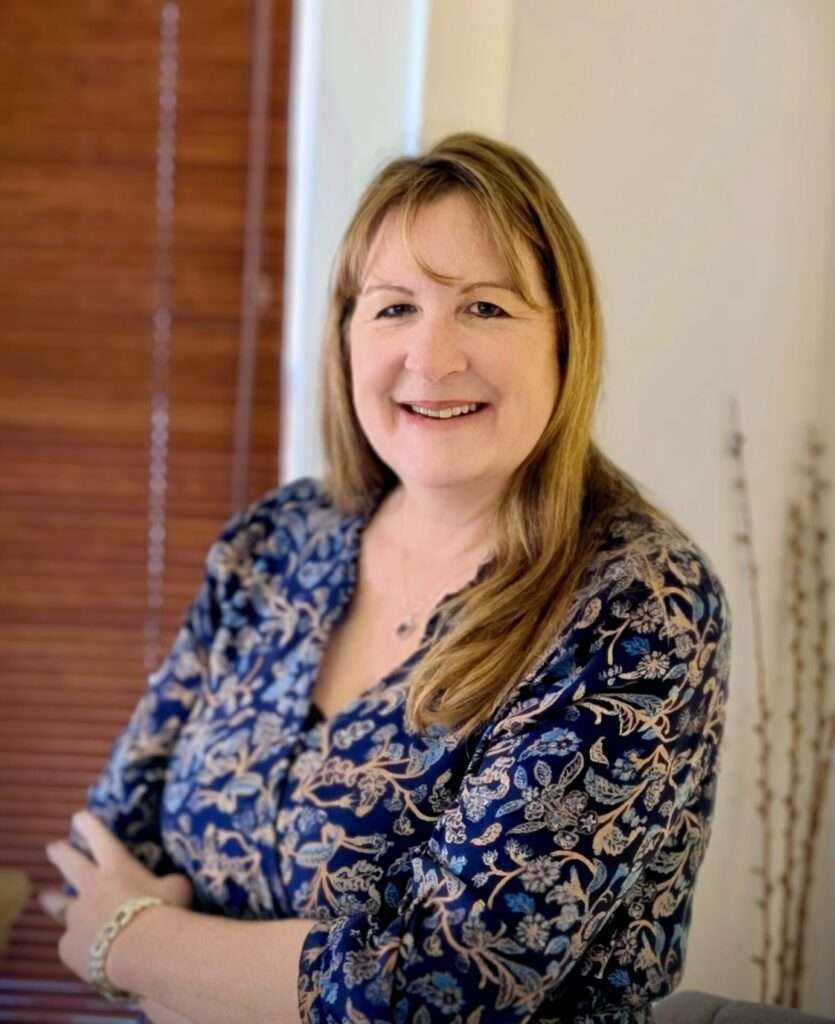
Find the Right Connection
Our team at Individual & Relationship Counseling Associates works collaboratively to support the Reno community. While we all have extensive and ongoing training in attachment-based Emotionally Focused Therapy (EFT) for couples, our clinicians provide specialized focus areas to help you find the right fit:
- Hillary Harris: Find internal safety and peace. Hillary focuses on individual and relationship therapy designed to move you through anxiety and toward a secure sense of self.
- Maddie Huntley: Navigate life transitions with confidence. Maddie offers specialized therapy for young adults facing family conflict or the challenges of early adulthood.
- Karen McKinney: Heal from the past. Karen provides compassionate relationship repair for individuals and couples, with a specialized focus on healing from addiction and trauma.
- Sarah Rosenbloom: Support for your growing family. Sarah offers dedicated attachment-based counseling for couples navigating the unique emotional complexities of fertility and pregnancy.
- Amy Aranda: Find your path back to connection. Amy focuses on helping individuals and couples move past “stuck” patterns to build clarity, balance, and security.
- Cornelius Sheehan: Guidance for deep change. As a veteran clinician, Cornelius provides expert care for complex family dynamics and long-term relationship repair, alongside depth-oriented psychotherapy for individuals.
Meet Hillary Harris, CPC-I
Hillary Harris: Find Your Path to Clarity, Balance, and Connection
When life feels overwhelming, it’s easy to feel stuck in a cycle of anxiety or disconnection—longing for a deeper sense of peace but unsure how to get there. I’m Hillary Harris, a relationship therapist in Reno dedicated to helping you navigate those difficult moments. My first priority is to create a safe, supportive space where you feel truly seen and understood, providing the foundation you need to move toward the life and relationships that matter most to you.
Healing begins when we understand the patterns that keep us stuck. My work is grounded in attachment-based Emotionally Focused Therapy (EFT), a proven approach for individuals and couples seeking to move past surface-level conflict and toward a secure, lasting connection. Whether you are navigating a painful rift with a partner or looking to find internal safety within yourself, I am here to guide you through the small, meaningful shifts that lead to deep trust and genuine closeness.
How I Can Help
My work is grounded in attachment-based Emotionally Focused Therapy (EFT), a proven approach for healing and strengthening relationships. Whether you’re navigating painful disconnection with a partner or struggling to make sense of your own emotions, I’ll help you identify the patterns that keep you stuck and guide you toward new ways of connecting that feel more supportive and secure. The change often begins with small, meaningful shifts—moments of reaching and responding differently—that open the door to deeper trust and lasting closeness.
My Approach
Specialty Areas:
- Emotionally Focused Therapy (EFT): A proven approach to strengthening relationships and resolving conflict.
- Attachment-Based EFT for Individuals (EFIT): Focused on helping you heal and grow as an individual.
- Brainspotting: A powerful, focused treatment method designed to help process trauma and access deep emotional healing.
A strong connection between therapist and client is essential for therapy to work. Learn more about the importance of the therapy working alliance here. Together, we’ll explore the patterns that are keeping you stuck and find ways to create lasting change.
Who I Work With
I’m especially passionate about working with:
- Couples wanting to rebuild connection and trust. Read more about couples therapy here.
- First responders and military personnel navigating high-stress environments.
- Individuals coping with relationship loss or the effects of trauma. Read more about individual therapy here.
I have extensive, past experience as a military spouse with children. This experience has given me insight into the unique challenges faced by people in high-stakes, high-stress roles, and I bring that understanding into my work. Emotionally Focused Therapy is a well-researched model for helping military couples and families. I’ll be happy to talk with you about your specific circumstances and how I can help.
What to Expect
At Individual and Relationship Counseling Associates, we focus on providing compassionate, focused, personalized care. I’m part of a dedicated, collaborative team and regularly consult with our Clinical Director, Cornelius Sheehan, LCSW, to ensure I’m offering the best possible support for my clients.
Session Details
- Fee: $140 per session with a sliding scale.
- Insurance Accepted: Hometown Health Plan
- Ages Served: 18 and older
Hillary’s Areas of Expertise
- Relationship Issues
- Trauma and PTSD
- Veterans
- Addiction
- Anxiety
- Codependency
- Depression
- Divorce
- Family Conflict
- First Responders
- Grief
- Life Transitions
- Marital and Premarital Counseling
- Spirituality
- Stress
More About Hillary
I’m a mom of three teens and a sweet therapy dog, Ginger. When I’m not in the therapy room I’m usually enjoying one of the beautiful outdoor opportunities that are a part of living in Northern Nevada.
Get Started in Therapy with Hillary Harris
I’m here to help you navigate the challenges you’re facing and support your journey toward emotional health and stronger relationships. Let’s work together to help you move forward. Call now, or use our contact form for a free consultation.
Find the Right Connection
Our team at Individual & Relationship Counseling Associates works collaboratively to support the Reno community. While we all have extensive and ongoing training in attachment-based Emotionally Focused Therapy (EFT) for couples, our clinicians provide specialized focus areas to help you find the right fit:
- Gina Bemis: Strengthen your family bond. Gina specializes in EFT-based couple and family support, helping both the unit and the individual grow together.
- Maddie Huntley: Navigate life transitions with confidence. Maddie offers specialized therapy for young adults facing family conflict or the challenges of early adulthood.
- Karen McKinney: Heal from the past. Karen provides compassionate relationship repair for individuals and couples, with a specialized focus on healing from addiction and trauma.
- Sarah Rosenbloom: Support for your growing family. Sarah offers dedicated attachment-based counseling for couples navigating the unique emotional complexities of fertility and pregnancy.
- Amy Aranda: Find your path back to connection. Amy focuses on helping individuals and couples move past “stuck” patterns to build clarity, balance, and security.
- Cornelius Sheehan: Guidance for deep change. As a veteran clinician, Cornelius provides expert care for complex family dynamics and long-term relationship repair, alongside depth-oriented psychotherapy for individuals.
A Discussion of Family Therapy for Military Families
What to Expect from the Episode
Dr. Polinsky explains the profound impact of caregiver accessibility on children, shedding light on how feelings of emotional disconnection can influence behaviors, life choices, and even risks like substance use. She and Con delve into the complexities of military family life, discussing challenges such as navigating parental roles during deployment and coping with the stressors unique to military culture.
Key Insights from Con Sheehan
Con shares real-life examples from his EFFT practice, emphasizing the importance of creating a secure family environment where every member’s emotional needs are acknowledged and met. He highlights actionable strategies such as:
- How availability and intentional parenting can counteract the effects of stress and disconnection.
- The role of repair in strengthening family bonds.
- The benefits of even short-term therapy in helping military families thrive.
Therapy for military families in Reno, NV with Con Sheehan, LCSW. Con does attachment-based EFFT, Emotionally Focused Family Therapy in Reno. He was recently a guest on the Communicate and Connect Podcast.
Ep. 50 with Con Sheehan on Emotionally Focused Family Therapy
In The Communicate and Connect Podcast for Military Relationships, marriage counselor Dr. Elizabeth Polinsky explains relationship science and discusses educational tips for improving your relationship and navigating military family life.
From Dr. Polinsky: “In this podcast you’ll find insights into how children cope with feelings of caregiver inaccessibility and how this can influence their behavior and life choices, including the risks of substance use. We also discuss specific challenges faced by military families, such as managing parental roles during deployment and the unique stresses that can impact both children and parents.
To aid our understanding, Con shares examples from his practice, focusing on creating a family environment where each member’s needs are understood and met. We’ll emphasize the importance of repair, availability, and intentional parenting—even discussing how therapy, even short-term, can be instrumental for families.”
Click here to learn more about family therapy in Reno with Cornelius and his colleagues at Individual & Relationship Counseling Associates.
“Side by Side: Navigating OCD Treatment with EFT Couple Counseling”
Last week I did a presentation on what I was very surprised to find is an under-recognized area of OCD treatment: the impact of attachment theory on relationships affected by OCD. Thrive Wellness co-sponsored an OCD Symposium in Reno that provided the opportunity to discuss OCD from a relational perspective. This article shares (in broad strokes) some key points from the presentation. In the “conclusions” section I focus on specific ways Emotionally Focused Therapy (EFT) can support couples facing the challenges posed by OCD in a connected, teamed-up way.
Understanding OCD within the Relationship Context
OCD’s influence on relationships extends beyond the individual symptoms of compulsions and obsessions. It can disrupt the normal flow of emotional connectivity and communication, leading to misunderstandings and emotional distance.
Assessment and Education
The therapeutic process begins with assessing the specific ways OCD affects the relationship and educating both partners about the disorder. This foundational step helps demystify OCD and sets the stage for collaborative problem-solving.
Identifying Patterns
Identifying negative interaction patterns is crucial to improving your relationship. For instance, compulsive behaviors might lead to frustration in one partner, resulting in a cycle of withdrawal and disconnection. Recognizing these dynamics allows couples to start addressing them.
Facilitating Emotional Engagement
Creating a Safe Space: A core aspect of EFT is creating a safe environment for both partners. This involves encouraging openness and vulnerability, especially for the partner with OCD, to share their fears and needs without fear of judgment.
Expressing Emotions: The therapist guides both partners in expressing their feelings related to the OCD symptoms, uncovering often-hidden emotions like isolation or resentment. This step is vital for understanding each other’s experiences.
Reframing the Problem: Viewing OCD as a shared challenge rather than a source of division is a powerful reframing technique. It encourages a united approach to managing the disorder’s impact on the relationship.
Enhancing Connection and Understanding
Through guided conversations, the therapy helps deepen the emotional connection. The partner with OCD explores and expresses their deeper fears, while the other partner learns to articulate their emotional experiences, leading to a strengthened bond.
Promoting Acceptance and Building New Patterns
Accepting the presence of OCD in relationship while working on effective management strategies is a delicate but necessary balance. The therapist works with the couple to develop new responses to OCD symptoms that foster connection rather than disconnection.
Consolidating Gains
Therapeutic progress is solidified by experiencing and discussing new ways of interacting outside of therapy sessions. This step is crucial for ensuring that the relationship continues to grow stronger, even in the face of OCD.
Collaborative Approach with Individual Therapy
A collaborative approach, involving coordination with the partner’s individual OCD treatment, ensures that therapy addresses both the couple’s relationship dynamics and the individual’s OCD management.
Conclusion
The OCD Symposium in Reno served as a valuable forum for discussing the integration of attachment theory into the treatment of OCD-affected relationships. Emotionally Focused Therapy offers a framework for couples to navigate OCD’s challenges, emphasizing the importance of a secure emotional bond and effective communication.
Here’s how EFT could be effective for couples where one or both partners have OCD:
- Improving Communication: EFT helps couples communicate more effectively, especially about sensitive issues like the impact of OCD on their relationship. It encourages partners to express their feelings and needs more openly and empathetically.
- Enhancing Emotional Support: By focusing on emotional attachment, EFT helps partners become more responsive to each other’s needs. For someone with OCD, having a supportive partner who understands their struggles can be crucial for managing symptoms.
- Reducing Relationship Stress: OCD can add significant stress to a relationship, which can exacerbate OCD symptoms. EFT aims to reduce relationship tensions by improving emotional connection, which can, in turn, create a more supportive environment for managing OCD.
- Building a Secure Attachment: A secure attachment can provide a solid foundation for individuals with OCD to face their fears and engage in exposure and response prevention (ERP) therapies more effectively. Knowing they have a supportive and understanding partner can make facing OCD challenges less daunting.
- Improving Coping Strategies: Couples can learn to identify and modify maladaptive coping strategies that may be reinforcing OCD symptoms. EFT encourages healthier ways of coping with emotional distress, which can indirectly help in managing OCD.
- Enhancing Treatment Compliance: Individuals with OCD who feel supported in their relationships may be more likely to adhere to individual OCD treatment plans, including medication and cognitive-behavioral therapy (CBT).
Closing thoughts about OCD and Relationship
It’s important to note that while EFT can improve the relationship dynamics that affect and are affected by OCD, it does not directly treat OCD symptoms. For direct treatment of OCD, evidence-based approaches such as CBT and ERP are recommended. Couples therapy, including EFT, can be a complementary approach to these treatments, especially for addressing the relational aspects of living with OCD.
The journey towards understanding and managing the relational impact of OCD is ongoing. As we continue to explore this intersection, the insights gained can guide more nuanced and effective approaches to support couples in strengthening their relationships in the face of OCD.
Feedback and dialogue on this topic of OCD in relationship are welcome. Please share your thoughts or experiences regarding the role of attachment theory in OCD treatment. For further discussion or inquiries, feel free to contact me at: con@erha-reno.com.

